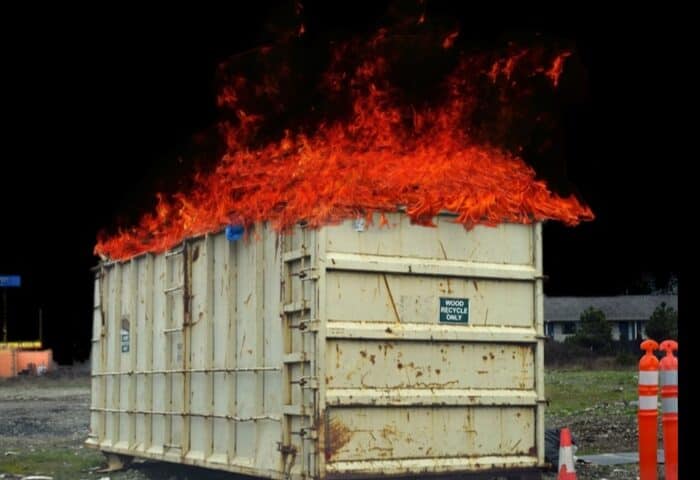The Episcopal Title IV clergy disciplinary canons have many problems, not just the fact that they’re huge and unwieldy. And while we can’t possibly hope to cover all the issues with Title IV in one post — or even a series of posts — one big problem is the willingness of judicatories to “pass the trash.”
What is passing the trash?
So what is passing the trash?
The phrase first gained traction in the Roman church, where advocates denounced the denomination’s efforts to ship problem priests to other dioceses or institutions, typically without addressing underlying problems.
Today, the Roman church has made strides in cleaning up its act. To be clear: The church hasn’t fully fixed the problems arising from 2,000 years of ignoring and tacitly condoning misconduct. But it’s making progress.
In contrast, the Episcopal Church made tremendous strides in addressing sexual abuse in the late 20th century. But once the church addressed these issues, it rested on its laurels.
As a result, the Episcopal Church today is mired in a 1970s worldview in which the only sin for clergy typically is having an affair or stealing money. Even then, odds are 50/50 that a judicatory will take the matter seriously.
Even then, dioceses often try to run the clock out on Title IV in an effort to pass the trash. Or, depending on your perspective, to allow the trash to take itself out.
How does passing the trash work?
In far too many cases, passing the trash involves quietly notifying a priest who is the respondent in a Title IV case that things aren’t looking promising.
Then, the diocese in question slow-walks the Title IV case. As. Slowly. As. Possible.
As in, taking months for an “investigation.” Or scheduling meetings of the Title IV reference panel three months out.
These delaying tactics are accompanied by efforts to avoid gathering too much damaging information. Thus, an “investigation” typically avoids interviewing primary victims or independent sources of data.
At the same time, intake officers (who are expressly NOT authorized to conduct an investigation) and others may lob softballs at the respondent, like calling him up and asking, “Did you do it?” Or asking an associate rector about the situation. (It’s not like the associate rector has a conflict of interest, right?)
Of course, in the meantime, the respondent priest is quietly rummaging around the ELCA, various parachurch ministries, or related nonprofits, looking for a new gig.
Sooner or later, et voila!
The priest in question has a new job, the so-called trash has taken itself out, and the diocese in question is again all squeaky clean, ready to do the whole loving, liberating, life-giving thing, sans abusive priest.
Of course, the diocese can then declare that it no longer has jurisdiction since the troublemaker is now canonically resident elsewhere.
Or the bishop diocesan can “resolve” the question via a “pastoral response,” often along the lines of, “Thou shalt not have any contact with your former parish,” which isn’t hugely problematic for a priest now working 12 hours away.
And, with three years in another denomination, or working in another branch of the Anglican Communion, the offender is, to paraphrase Madonna, once again a virgin.
The problems with passing the trash
The problems with passing the trash go beyond just ignoring bad behavior and include:
- Failing to engage in truth-telling and disclosure, thus leaving skeletons in the closet for future generations.
- Additional trauma for victims, who often took heart in hand to come forward with reports of misconduct.
- Signalling to clergy that Title IV is a paper tiger, and there are de facto few consequences for misconduct.
- Losing the opportunity to live into the promises of Title IV, which include healing, restitution, accountability, and potential reconciliation.
- This creates a problem for another bishop, diocese, and parish. Specifically, truly bad actors not only don’t learn anything from a token brush with clergy discipline but are instead emboldened by it. Thus, it is discourteous and disrespectful to pass the trash or to allow the trash to take itself out.
Is the trash getting passed in any cases we’re following?
It is difficult to answer whether the trash is getting passed or is taking itself out.
Indeed, in most such cases, judicatories use the whole “Title IV is confidential” routine to keep things quiet as the miscreants scurry off into the shadows.
That said, there are several cases where we are watching closely for this possibility:
- The Bishop George Sumner Title IV case, which is pending with the national church. Filed by Anglican Watch, the complaint alleges that Sumner engaged in retaliation over complaints of sexual harassment. The case has been sitting around for so long now that Sumner may die of old age before anything happens. Tellingly, intake officer Barb Kampf dismissed the initial complaint without even so much as interviewing us, with the unsurprising result that she got the parties to the complaint wrong. Gah.
- The Dan McClain case in the Diocese of Southern Ohio. To be clear, we like and respect the parties involved on the diocesan side. But this is a priest who, while married, moved in with another woman and subsequently tried to justify his conduct by saying she was “special.” Come on — how hard is this one? Let’s give McClain the heave-ho and move on.
- The Todd Ousley case. Ousley, currently serving as Bishop Provisional of Wyoming, has a Title IV case pending over his unauthorized disclosure of confidential Title IV information via a video on the Diocese of Wyoming website. Anglican Watch filed the case.
- The St. Thomas Fifth Avenue meltdown, in which we suspect we’ll see Carl Turner, Matthew Moretz, and the Groping Guru, aka Mark Schultz, quietly skip town before they face meaningful clergy disciplinary consequences.
Stay tuned. This fall should be an interesting time.


Leave a Reply